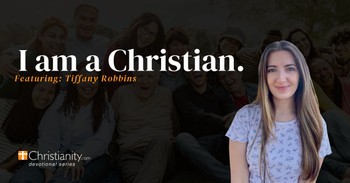One of the hallmarks of contemporary Liberalism is an embrace of multiculturalism. A truly progressive society, so the thinking goes, is one in which people from all walks of life - all racial, ethnic, religious, and cultural backgrounds - can coexist harmoniously, even though they have radically different world views and conflicting notions about how to order themselves in society. Inculcating a spirit of multiculturalism in our children has become a top priority in America's schools. It is important, we've decided, for young people to learn tolerance at an early age: You may not look the same, or act the same, or believe the same as your neighbor, but you should nonetheless treat him with respect and dignity as a fellow human being. America's strength lies in her diversity, after all.
In recent years, however, the notion of what it means to be "tolerant" has changed radically. There was a time when tolerance meant just that: tolerance. I may not agree with my neighbor's religious beliefs, or lifestyle choices, or cultural mores, but as a law abiding, dignified citizen I tolerated these differences in a peaceable manner. My neighbor would extend me the same courtesy. If the occasion arose, say, come election season, we might engage in a lively discussion of our differences, debating the merits of each person's views. Today, however, a new understanding of tolerance reigns: I must not merely respect my neighbor's right to think and act differently from me, I must embrace, celebrate, and promote my neighbor's way of life, even if that means repudiating my own values in the process.
Turns out, Liberals aren't as keen on multiculturalism as they claim. Their views might be best described as "Our-culturalism." The tenets of our-culturalism are quite simple: Our worldview is right, good, and absolutely necessary for a just society. Those who disagree with us are not merely wrong, not merely different, they are a positive threat - hatemongers who must be isolated and ostracized for the greater good of society.
So it is with the issue of homosexuality, and the conflict between the homosexual lifestyle and those who espouse a traditional understanding of marriage and family. Homosexual activists have said for years that all they want is tolerance, but it has become increasingly clear that mere tolerance is not enough. They want their lifestyle to be endorsed by society and affirmed through civil law. Enter the fast food chain Chick-Fil-A. According to a recent article in the New York Times, the restaurant's Christian roots have many homosexuals torn between their love of southern fried comfort fare and their sexual identity:
A Pennsylvania outlet's sponsorship of a February marriage seminar by one of that state's most outspoken groups against homosexuality lit up gay blogs around the country. Students at some universities have also begun trying to get the chain removed from campuses.
The donation has some fans cheering and others forcing themselves to balance their food desires against their personal beliefs.
"Does loving Chick-fil-A make you a bad gay?" said Rachel Anderson of Berkeley, Calif. "Oh, golly, human beings have an amazing capacity to justify a lot of things." Ms. Anderson has been with her partner for 15 years. They married in California during the brief period when same-sex marriage was legal in 2008. They have 7-year-old twins. A visit to her spouse's family in North Carolina always includes a trip to the chicken chain.
But as she learns more about the company, Ms. Anderson is wavering about where to eat when they travel to Charlotte in April.
"I'm going to have to sit with this a little bit," she said.
The recent controversy prompted the President of Chick-Fil-A to issue a statement on the company's Facebook page:
Heartfelt hospitality is at the core of Chick-Fil-A. We want a welcome and comforting environment for all of our guests, and this commitment is a daily focus. Some recent events have called into question the principles of Chick-Fil-A, and speak directly to the heart of our organization. . . . Let me be clear: Chick-Fil-A serves all people, and values all people.
In this statement, Dan T. Cathy articulates a core tenet of his Christian faith: Each and every person is made in the image of God, and therefore possesses inherent worth, value, and dignity. This principle ensures that every Chick-Fil-A customer will be treated graciously and with respect, regardless of his or her sexual orientation or anything else. Unfortunately this isn't good enough for the proponents of our-culturalism. So long as the company and its employees embrace the Christian faith, they will be labeled as an intolerant force of hatred.
Given the recent focus on a need for renewed civility in public discourse, it is unfortunate that some within the homosexual community are attempting to stir up rancor and controversy where none need exist - that the same people who hold themselves up as defenders of tolerance are so intolerant themselves that they would destroy the good name and reputation of a respected business because of a disagreement over sexual morality.
So much for tolerance.
Ken Connor is an attorney and co-author of "Sinful Silence: When Christians Neglect Their Civic Duty" He is also Chairman of the Center for a Just Society.
Publication date: February 14, 2011








